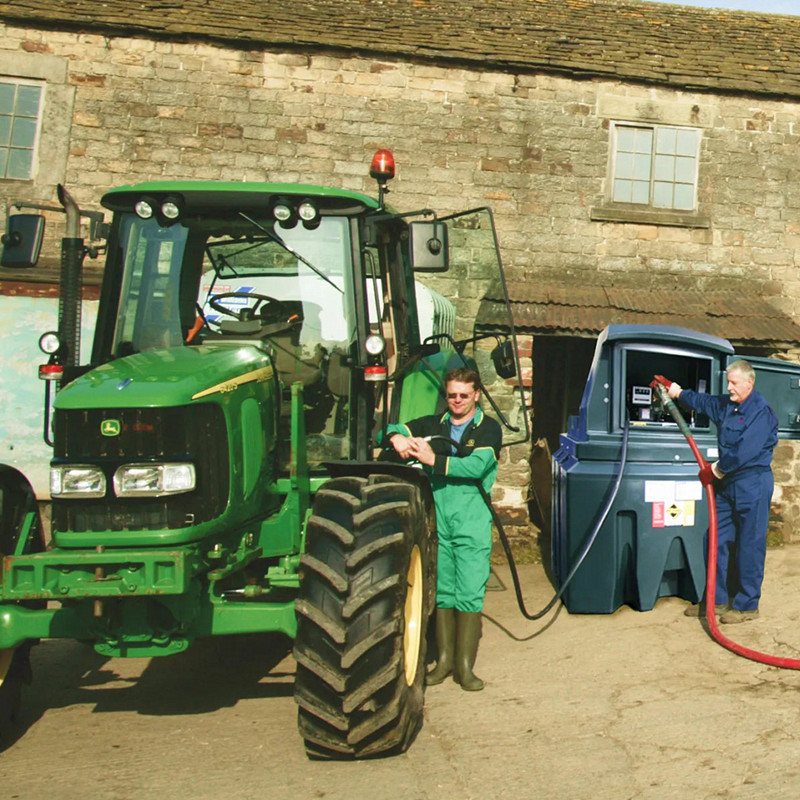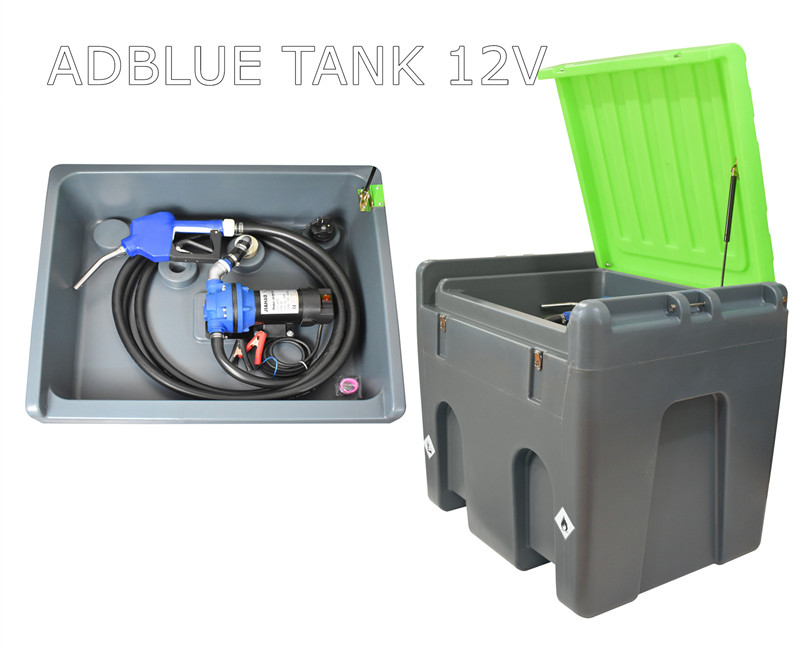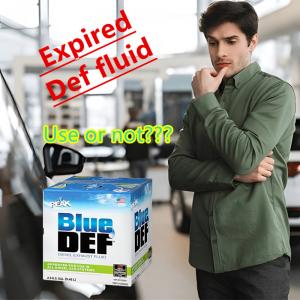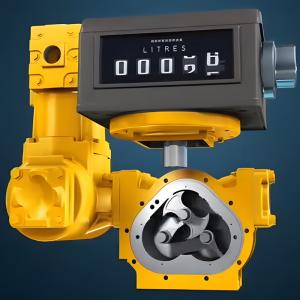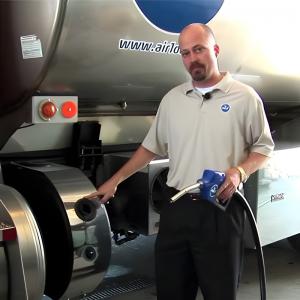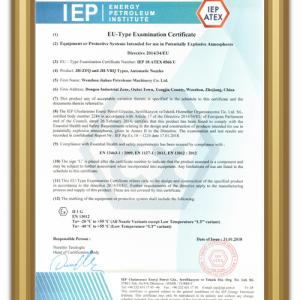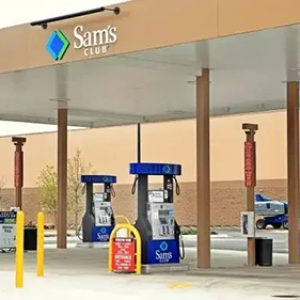Smart Solutions from Mobile Fueling to Precise DEF Filling
Optimizing Farm Fluid Management: Smart Solutions from Mobile Fueling to Precise DEF Filling
In modern agriculture, efficiency and sustainability drive progress. Every step of farm operation, from cultivation to harvest, relies on the precise and efficient management of various fluids. These include fuel, Diesel Exhaust Fluid (DEF), pesticides, fertilizers, and even water. Traditional manual methods and bulk transport are gradually giving way to smarter, more integrated systems. Thanks to transfer tanks with pumps, specialized DEF transfer pumps, and comprehensive agriculture fluid dispensing solutions—especially precise DEF filling technologies—farm fluid management has transformed from a cumbersome chore into a highly optimized process.
I. The Core of Mobile Fluid Management: Transfer Tanks with Pumps
In vast farmlands, transporting fuel or other crucial fluids to where they're needed was once a time-consuming and inefficient task. Today, transfer tanks with pumps have become an indispensable component of modern farm efficiency. These self-contained solutions allow farmers to deliver fuel and various essential fluids directly to tractors working in the field, remote generators, or sprayers being prepped for operation, significantly reducing equipment downtime.
1. Diverse Transfer Tank Options
Transfer tanks come in various materials and sizes to meet the specific needs of different farms:
-
Polyethylene Tanks: Lightweight and corrosion-resistant, these are ideal for transferring water, liquid fertilizers, pesticides, and DEF, which can be corrosive to metal. They typically feature UV protection to ensure fluid quality remains uncompromised.
-
Steel Tanks: Offering superior structural strength and durability, these are ideal for transferring diesel, gasoline, and other fuels. They can withstand harsh agricultural environments and often come with lockable caps for security.
-
Aluminum Tanks: Balancing the strength of steel with the lightness of polyethylene, these tanks undergo special treatment processes to ensure corrosion resistance. They are often used in transport scenarios where weight is a critical consideration.
These transfer tanks usually feature internal baffles to reduce fluid sloshing during transit, enhancing transportation safety.
2. Integrated Pump Systems Matching Diverse Needs
Integrated pump systems are key to efficient fluid dispensing and can include:
-
12V Electric Pumps: The most common type, powered by vehicle batteries, offering convenience, fast operation, and moderate flow rates suitable for daily fuel and DEF filling. They usually come with automatic nozzles for ease of use.
-
Manual Pumps: Ideal for scenarios not requiring high flow rates or where power is limited. They are cost-effective and simple to operate.
-
Gas-Powered Pumps: These provide higher flow rates and faster dispensing speeds, suitable for situations requiring rapid, large-volume fluid transfer, such as quick refueling of large equipment or drawing water from sources.
This high degree of mobility and flexibility is especially crucial during peak seasons like planting and harvest, where every minute saved translates into significant productivity gains.
3. The Trend Towards Smart Systems: Remote Monitoring and Data Integration
With the widespread adoption of Internet of Things (IoT) technology in agriculture, smart transfer tanks are emerging as a new hot topic. These intelligent tanks can integrate telemetry systems for real-time remote monitoring of fluid levels, consumption rates, and even temperature. Farmers can use their phones or computers to get live updates on each tank's status, plan refills in advance, and prevent equipment downtime due to running out of fluid in the field. GPS tracking further enhances asset management efficiency, particularly for large farms or contractors. This data integration capability optimizes information flow, allowing seamless connection with Farm Management Systems (FMS) for more precise cost accounting and resource scheduling.
II. Ensuring Critical Steps: DEF Transfer Pumps and Efficient DEF Filling
Diesel Exhaust Fluid (DEF) has become essential for modern diesel engines to meet emission standards. However, DEF's unique properties necessitate special handling. Unlike fuel, DEF is a high-purity urea solution whose purity is paramount. If contaminated or improperly handled, it can cause irreversible damage to the engine's Selective Catalytic Reduction (SCR) system, leading to costly repairs. This is precisely where professional DEF transfer pumps and efficient DEF filling technologies come into play.
1. Special Design Requirements for DEF Transfer Pumps
DEF transfer pumps differ significantly from standard Fuel pumps in their design philosophy, as they must meet DEF's strict compatibility requirements:
-
Non-Corrosive Materials: DEF is corrosive to carbon steel, copper, and brass. Therefore, the core components of DEF pumps must be made from DEF-compatible materials like stainless steel, polypropylene, or high-density polyethylene (HDPE) to ensure fluid purity and extend pump life.
-
Closed-Loop Systems: Many DEF pumps utilize closed-loop systems, minimizing DEF's exposure to air during dispensing. This prevents contaminants like dust and debris from entering, thereby maintaining DEF purity.
-
Dry-Break Couplings: Advanced DEF transfer systems use dry-break couplings, ensuring virtually no drips or spills during connection and disconnection. This reduces waste and prevents contamination.
-
Precise Flow meters: Integrated precise Flow meters in the pump ensure the accuracy of DEF filling, preventing overfilling or underfilling and optimizing the SCR system's efficiency.
2. Diverse DEF Filling Scenarios
DEF filling needs are diverse, ranging from large-volume bulk transfers to daily equipment top-ups, with corresponding solutions available:
-
Transfer from IBCs (Intermediate Bulk Containers) to Smaller Tanks: Farms often purchase DEF in 1000-liter IBCs. In these cases, a professional DEF transfer pump is needed to transfer the fluid to smaller mobile filling tanks or directly into equipment.
-
Dedicated DEF Transfer Tanks with Pumps: Similar to fuel transfer tanks, but specifically for DEF. These are typically made of polyethylene and feature an integrated specialized DEF pump and dispensing nozzle. They offer flexible mobility around the farm for convenient DEF top-ups for tractors, harvesters, etc.
-
Bulk DEF Storage Solutions: For large farms, on-ground or underground bulk DEF storage tanks can be established, equipped with professional pumping and dispensing systems for large-scale DEF filling.
3. Compliance and Overcoming Challenges: Industry Hot Topics
The ISO 22241 standard is the global guiding standard for DEF production and quality. It mandates that all DEF transfer pumps and related equipment must comply with this standard to ensure DEF purity and performance. Impure DEF can lead to SCR system failure and potentially costly repairs.
Current industry hot topics also include:
-
Cold Weather DEF Handling: DEF crystallizes below -11°C (12°F). Therefore, DEF transfer pumps and storage tanks in cold regions often require heating features to ensure normal dispensing during winter.
-
Balancing Convenience and Compliance: As DEF usage increases, farms demand more convenient filling solutions without compromising DEF purity. This drives the development of more compact, user-friendly DEF transfer and filling equipment.
III. Beyond Fuel and DEF: Broadening Agriculture Fluid Dispensing Applications
The scope of agriculture fluid dispensing extends far beyond just fuel and DEF, encompassing a wide range of liquids essential for modern agricultural production:
1. Precise Application of Pesticides and Fertilizers
-
Pesticide Dispensing: The application of pesticides demands extremely high precision to effectively control pests and diseases while minimizing environmental impact. Professional pesticide dispensing systems typically include accurate flow meters, mixers, and nozzle control systems to ensure uniform spraying at pre-set dosages and rates. Many systems also feature chemical induction units for safer operation.
-
Liquid Fertilizer Dispensing: Liquid fertilizers are gaining popularity due to their more uniform application and compatibility with irrigation systems. Agriculture fluid dispensing equipment needs to handle liquid fertilizers of varying viscosities and corrosiveness. They also enable Variable Rate Application, allowing precise application based on soil analysis maps or crop demand maps, thereby optimizing nutrient utilization, reducing waste, and lessening environmental impact.
2. Efficient Management of Water Resources and Lubricants
-
Irrigation Water Dispensing: In many arid regions, efficient water distribution is critical for crop growth. Large-scale agriculture fluid dispensing systems can pump water from sources to all corners of the field, enabling precise irrigation through smart valves and sensors.
-
Livestock Drinking Water: Automated watering systems use pumps and pipelines to deliver water to livestock shelters, ensuring animals have access to clean drinking water at all times.
-
Lubricants and Hydraulic Oils: The routine maintenance of farm machinery requires significant amounts of lubricants and hydraulic oils. Transfer tanks with pumps are also commonly used for on-site replenishment of these oils, ensuring smooth machinery operation and extending equipment life.
3. Technology-Enabled Precision Agriculture
Currently, precision agriculture places even higher demands on agriculture fluid dispensing. The combination of IoT sensors, GPS positioning systems, and big data analytics enables farms to achieve ultra-high precision fluid dispensing. For example, variable-rate spraying systems based on drone imagery and soil sensors can automatically adjust the amount of pesticide or fertilizer applied according to the actual needs of different field areas. This not only increases efficiency but also significantly reduces chemical usage and environmental pollution. IoT systems for tracking chemical usage are also becoming a crucial part of compliance and sustainability.
IV. Key Considerations for Modern Fluid Dispensing Systems
Investing in modern agriculture fluid dispensing systems is not just about convenience; it's about enhancing overall operational safety, compliance, and economic benefits.
1. Safety First
-
Spill Prevention Design: All transfer tanks with pumps and DEF transfer pumps should feature overflow prevention and automatic shut-off functions to prevent dangerous fluid leaks.
-
Fire Safety: Especially for fuel transfer, strict fire safety regulations must be observed, including grounding, using explosion-proof motors, and proper storage locations.
-
Chemical Handling: Dispensing pesticides and fertilizers requires operators to wear appropriate Personal Protective Equipment (PPE) and ensure equipment has corrosion resistance and safe rinsing features.
-
Ventilation: Ensure good ventilation in storage and dispensing areas, especially when handling volatile fluids.
2. Compliance and Environmental Protection
-
Environmental Regulations: Adhere to local and national environmental regulations, particularly those concerning fluid leaks, waste fluid disposal, and emissions.
-
Transportation Laws: Understand and comply with laws and regulations for transporting hazardous materials, ensuring the transfer tank with pump structure meets transport requirements.
-
Metrology Standards: For commercial fluid dispensing (e.g., selling fuel to other farms), ensure the fuel dispenser complies with local metrology standards.
3. Maintenance and Durability
-
Regular Inspections: Periodically inspect hoses, connections, pump bodies, and filters for wear or leaks. The fuel hose swivel, though small, can significantly extend hose life with proper maintenance.
-
Filter Replacement: Regularly replace fuel and DEF pump filters to prevent contaminants from entering sensitive engine systems.
-
Calibration: Periodically calibrate flow meters to ensure the accuracy of DEF filling and fuel dispensing.
-
Harsh Environment Adaptability: Farm environments are often tough; equipment needs to withstand dust, mud, extreme temperatures, and frequent movement. Choosing robust and durable equipment is therefore crucial.
4. Return on Investment (ROI)
While the initial investment might be higher, high-quality agriculture fluid dispensing systems offer significant returns:
-
Labor and Time Savings: Reduce trips to the fuel depot and cut down on refueling time.
-
Reduced Waste and Loss: Precise metering and overflow prevention designs effectively control fluid consumption, avoiding unnecessary waste.
-
Extended Equipment Life: Using clean fuel and DEF, combined with timely on-site maintenance, can significantly extend the lifespan of farm machinery, lowering repair costs.
-
Increased Productivity: Reduce downtime and ensure continuous equipment operation, thereby boosting overall agricultural productivity.
Conclusion: Towards a Smarter, More Sustainable Agricultural Future
In the rapidly evolving world of agriculture, fluid management is no longer just about physically moving liquids. It's a critical element in boosting efficiency, ensuring sustainability, and lowering costs. From the flexible deployment of robust transfer tanks with pumps in the field to the strict purity control by professional DEF transfer pumps, and the precise application of agriculture fluid dispensing systems for pesticides, fertilizers, and water resources—every link highlights modern agriculture's pursuit of refined operations. Efficient DEF filling and precise flow control not only comply with increasingly stringent environmental regulations but also ensure optimal performance of farm machinery.
Looking ahead, with the deep integration of IoT, artificial intelligence, and automation technologies, agriculture fluid management will become even smarter, more integrated, and more autonomous. Sensors will monitor inventory in real-time, drones will guide precise application, and data analytics will optimize the use of every single drop of fluid. This transformation isn't just about making farm operations smoother; it's about building a more efficient, responsible, and resilient agricultural future to meet the dual challenges of global food production and environmental protection.
